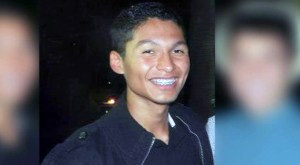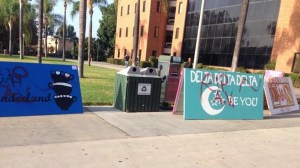Leaders of a Cal State University Northridge fraternity voluntarily closed its chapter following a “deeply disturbing” report investigating the hazing-related death of a 19-year-old pledge, the campus president stated Friday.

Hazing on the part of Pi Kappa Phi played a role in Armando Villa’s death on July 1, CSUN President Dianne Harrison stated.
“The report’s findings are deeply disturbing, and I will not turn a blind eye to any reports of hazing,” Harrison stated. “Hazing is stupid, senseless, dangerous and against the law in California.”
Villa collapsed on a trail after running out of water and being denied shoes during a fraternity pledge hike in the Angeles National Forest near Big Tujunga Canyon Road, his family said at the time.
“It feels like a nightmare,” his cousin Nick Marquez said in July. “I just want him to … come through the door. I’m never going to get to hug him again.”
Pi Kappa Phi was ordered by CSUN officials to “cease and desist all activities pending the outcome of the investigation,” and the chapter was suspended by the national fraternity within two days of Villa’s death.
Details about the fraternities hazing activities were not provided in CSUN’s statement Friday, but Harrison said the campus was working “to ensure that the university’s zero-tolerance policy on hazing is clearly understood and followed.”

“(Hazing) is a vestige of a toxic way of thinking in which it was somehow okay to degrade, humiliate and potentially harm others. It has no place on this or any university campus, in any student club or organization, and it will not be tolerated,” she stated.
Following the report’s findings, Pi Kappa Phi representatives were given the choice Thursday to voluntaraly withdraw from the national chapter or face a formal hearing at which the university would seek the same conclusion.
The fraternity officially withdrew Friday morning.
A criminal investigation into individual student’s roles in Villa’s death and the fraternities hazing activities was also underway.
“This is a separate process, and students may face penalties that could be as serious as expulsion from the university,” Harrison stated.
The Los Angeles County Sheriff’s Department was also conducting a separate investigation.















